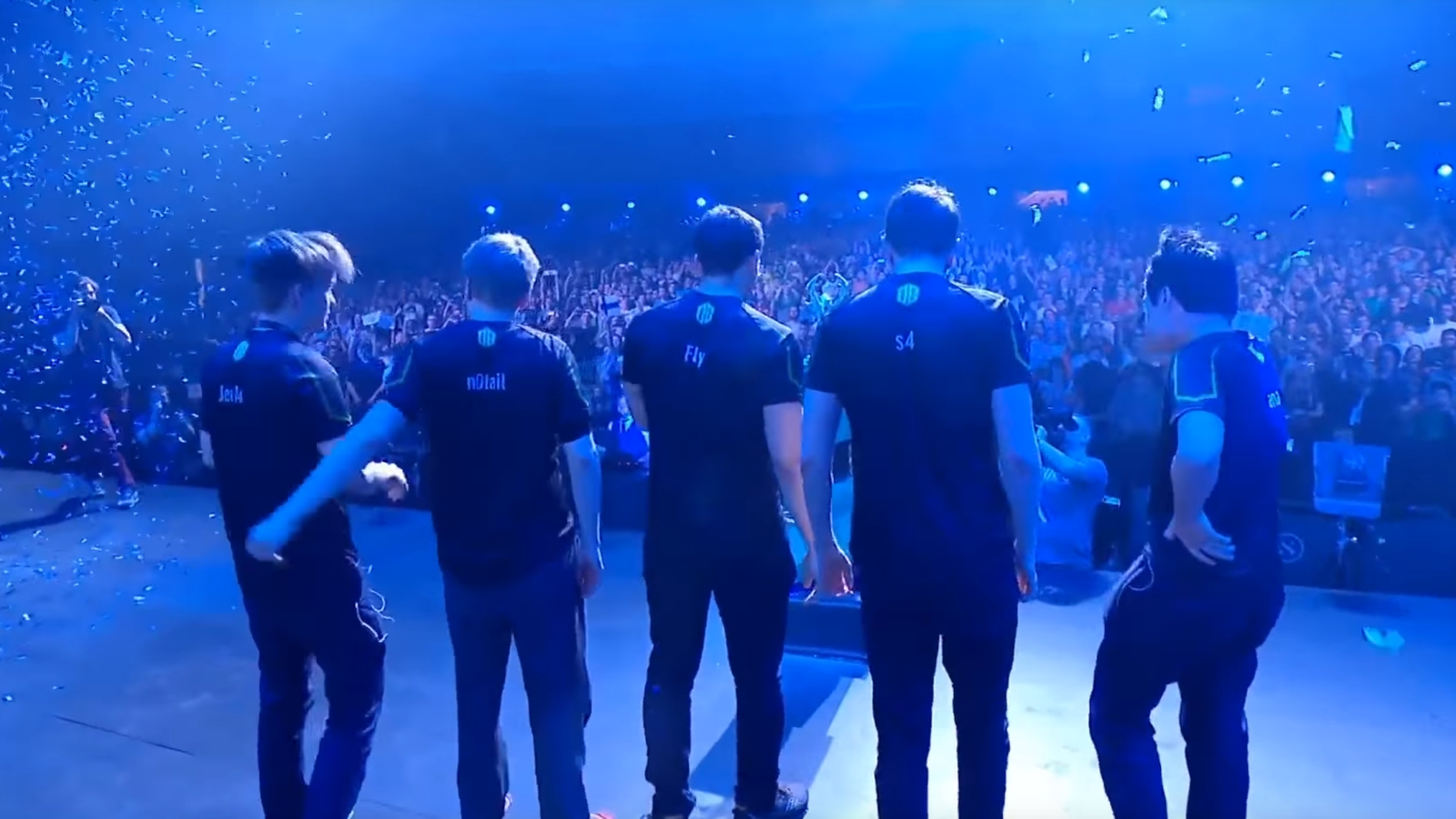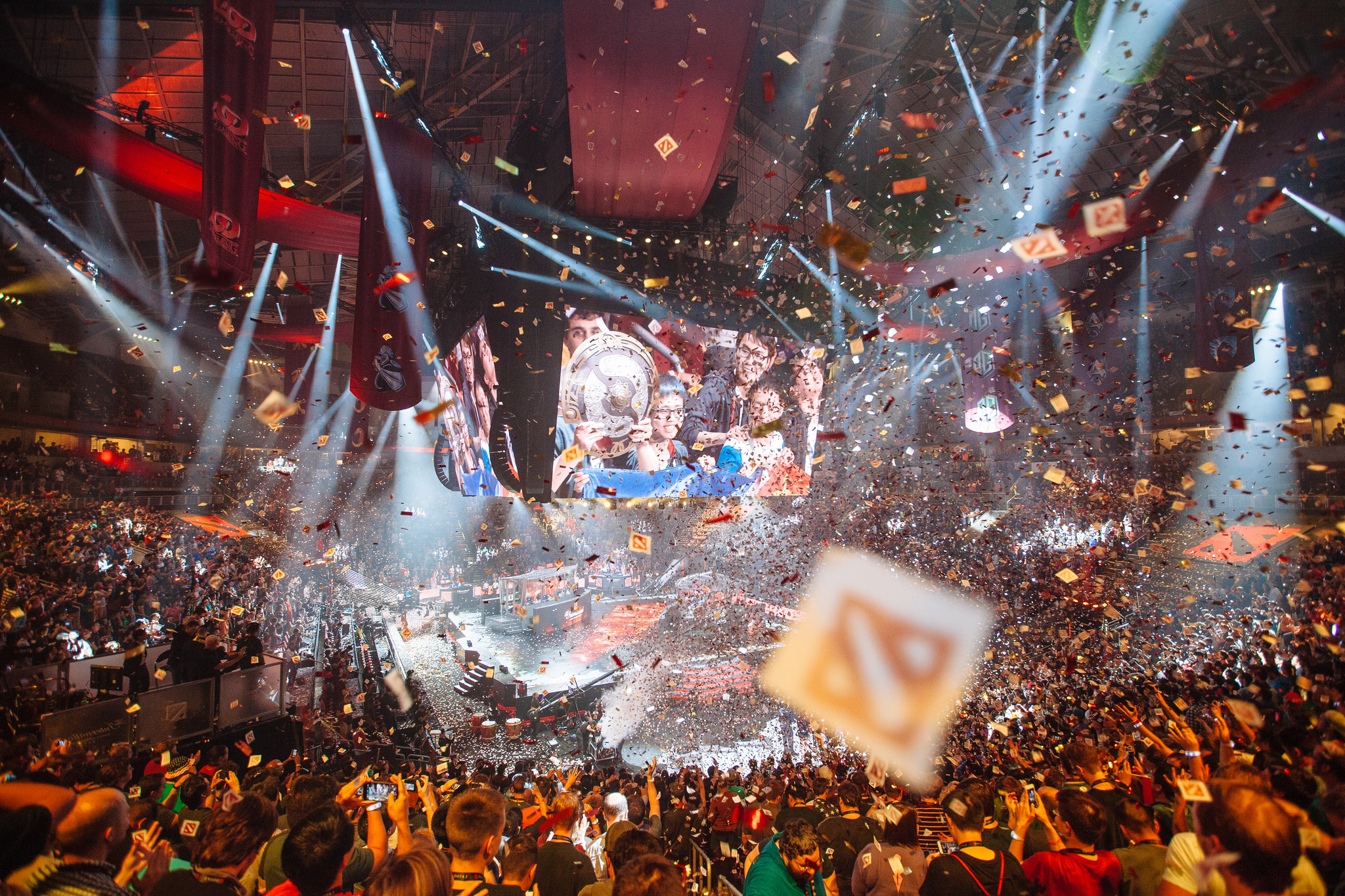Drama at the Kiev Major kicks off an exciting period for competitive Dota 2
The kings of the Majors hold on to their crown, but new contenders are always on the rise.

With a $1 million grand prize on the line, Dota 2’s Kiev Major was an event for the history books. It was the fourth Valve event won by European power squad OG, who swept the last games away from CIS team Virtus Pro in an intense back-and-forth series.
The event couldn’t have ended more explosively than a hometown CIS-region team taking on the defending champion of the Majors series. In fact, the event went into a full five matches for the first time since TI3. Each team demonstrated its strength and tact in draft and play every single game, and some drafts even seemed impossible to pull off, especially the tournament’s final game. In the end, OG managed to outplay their opponents through both strategy and skill.
Each team had a clean and strong run. While OG didn’t have quite as neat of a group stage, with a 6-5 record, they fought through their bracket well. Namely, they took out top American team Evil Geniuses in the semi-finals, plus Team Faceless and former TI6 squad Team Random along the way.
VP’s bracket run was much trickier. They started off by winning over iG.Vitality, but they eventually met VG.J, likely one of the top four squads in China right now. If defeating VG.J wasn’t enough to prove their worth, they eventually met tournament favorites Invictus Gaming in the semis, who took the grand prize against OG at the Dota 2 Asian Championships. This match was a surprising 2-0 sweep into the grand finals.
Aside from the finals, there was match-driven drama that kept fans, casters and even players on the edges of their seats. The continued use of single-elimination format meant that every match was life-or-death for every team. It was especially dire for teams that placed lower in group stages, as they were met with the team of the inverse seed (1-16, 2-15, etc.). In the past, group stage performances were often good predictors of how teams would do on the main stages. Many predictions were turned on their heads in Kiev.
For these reasons and others, the format was was met with some controversy at all stages. Still, given this was the second Valve tournament to use this format, teams needed to adapt. It also made for an excellent main event with unexpected storylines. After all, every team has their good and bad days.
The biggest surprise upset was when Brazilian team SG E-sports upset the top seed of the group stage, European favorites Team Secret. The latter had blasted their way through the qualifiers and the group stage, hitting an intimidating 19-0 win streak up to the main event. However, both Secret and Dota 2 fans were shocked when SG took the series and knocked the European squad out of the event. Prior, the community had generally negative outlook on South American teams, but this will likely give the region a breath of new life. Unfortunately, SG did fall in a hard-fought quarterfinal match to continental rivals Evil Geniuses, but not before taking a game off the TI5 champions.
Keep up to date with the most important stories and the best deals, as picked by the PC Gamer team.
Also predicted by many was event domination by Invictus Gaming, the Chinese favorites going into the tournament. However, Virtus Pro met them in the semifinals, overcoming the expected champions 2-0 and moving onto the finals. While TNC Pro Gaming had solid performance in the group stages, placing in the top three, the team was also overtaken by regional rivals Team Faceless in a tough match.
Team Liquid, which looked strong going into DAC and Kiev, met some unfortunate circumstances in each tournament. At Kiev, their group stage was fairly decent, and they had a main bracket run to match, beating the Chinese squad Newbee. However, they unfortunately met iG in the quarter-finals, who managed to defeat them.
The Jeremy Lin-endorsed squad VG.J, considered one of the top four in China, started off their run reasonably well, taking down American fan favorites Digital Chaos (formerly the Team Onyx squad). In the next round, though, they met VP and were taken down in the quarter finals.
Other fan favorites also met unfortunate doom in the round of sixteen. Mousesports, the former Ad Finem squad acquired before Kiev, was taken down by iG. Thunderbirds, the ex-Digital Chaos squad, was also knocked out in a regional rivalry match against Evil Geniuses. In a nutshell, it was a difficult tournament for many teams, which means tough times ahead for a number of players.

What happens next?
The dilemma comes from Valve’s roster lock system, if the rules from last year apply. Valve prioritizes squad composition over team banner or organization. For that reason, they heavily consider player swaps leading into their official tournaments, especially if there’s a major swap and very few third-party events the team attended to show for it. Fortunately, there are five tournaments between now and The International, with many regions (especially China) using in-house leagues to fill the spaces.
Teams that didn’t place in the top four (and even some that did) have difficult questions to ask. Is it worth risking a new squad to create an optimal team that can fight to the top from square one? Is it worth investing in the current team—does it have potential?
It’s easier to answer this question for many of the bottom eight teams. While they may be able to grab regional invites, other teams are always sharpening their blades, and regionals may become more cutthroat than expected. Therefore, it may be worth it for many teams to swap out certain players and go for a shot at regionals. Valve may even give them a direct invite if they can pull off a smooth circuit between their main events.
If Kiev demonstrated one thing, it’s that anything goes in Dota 2. The same will likely apply into the shuffle period, whether through surprise disbands or surprise team coherence. There hasn’t been a more exciting time for the competitive Dota 2 scene in a while.

